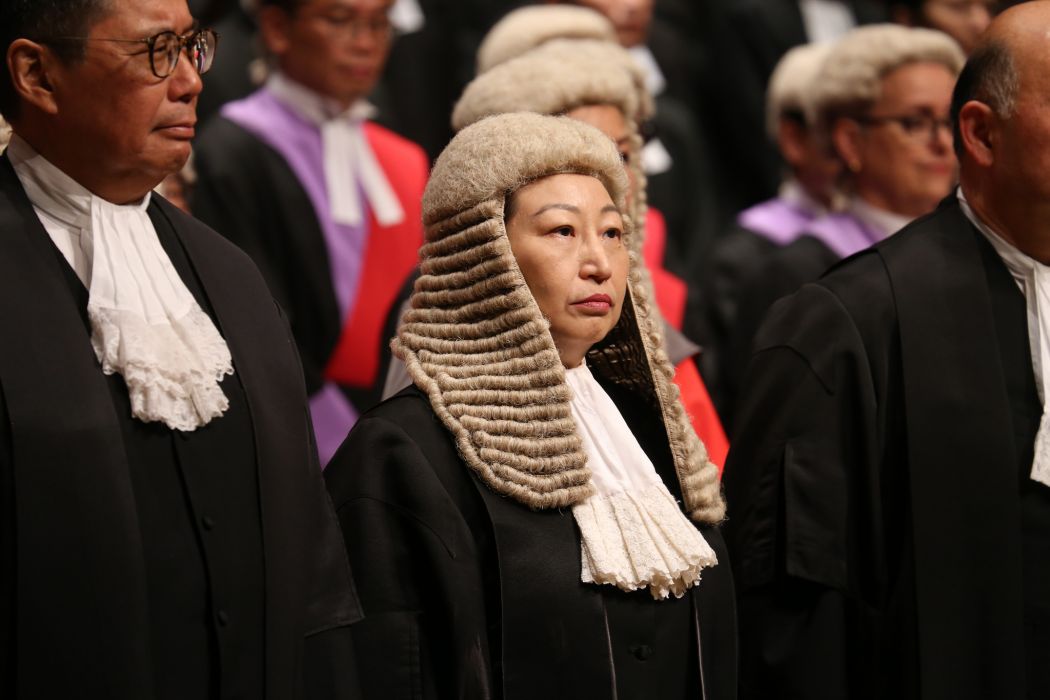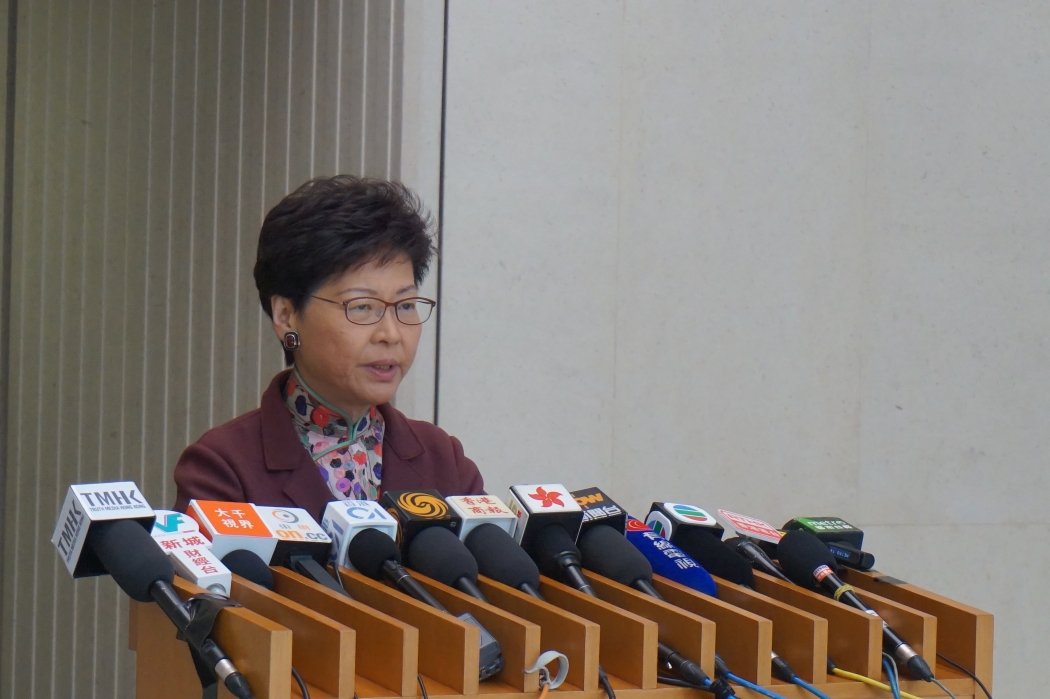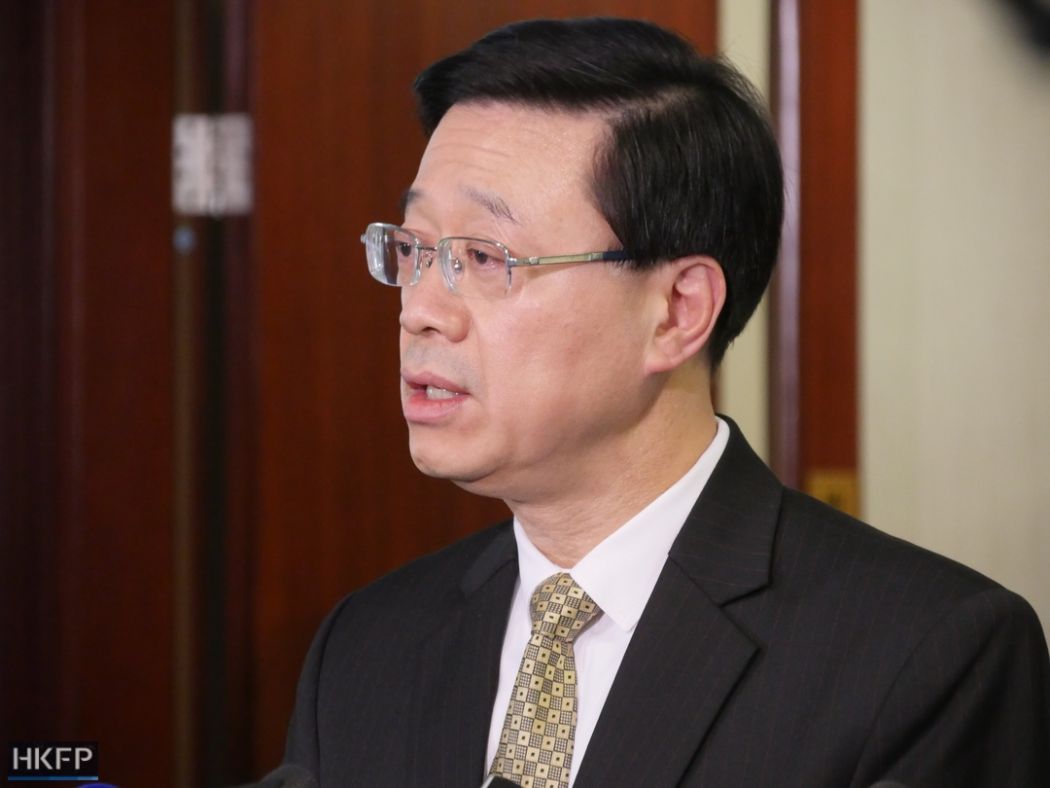Hong Kong’s professional body of barristers has singled out top government officials, saying some of them have misled the public over there being a “loophole” in the city’s extradition laws.
In its second public statement within a month on the topic, the Hong Kong Bar Association maintained that it did not support the proposed bill despite recent revisions. The bill was gazetted on Friday and will be sent to the legislature on Wednesday.

The Bar Association took issue with multiple aspects of the revised bill, including how the government describes the restriction against extradition from Hong Kong to mainland China.
“This restriction against any surrender arrangements with the rest of [China], whether under a long-term formal arrangement or case-based arrangements, is not a ‘loophole,’ as repeatedly, and in our view, misleadingly, asserted by the senior government officials (namely the Chief Executive, the Secretary for Justice, and the Secretary for Security) on various occasions and now in the LegCo Brief,” the statement read.
Just now: Responding to the Bar Association’s criticism about #HongKong‘s upcoming #China extradition law update, Chief Exec. Carrie Lam insists there is a legal loophole. Full story: https://t.co/gCYGgCQ8lb pic.twitter.com/fNy6kWsYY0
— Hong Kong Free Press (@HongKongFP) April 3, 2019
Instead, the restriction was a “deliberate decision” by the legislature when enacting the law in 1997, in light of the “fundamentally different criminal justice system operating in the Mainland and concerns over the Mainland’s track record on the protection of fundamental rights,” the group said.
Hong Kong has negotiated bilateral extradition agreements with jurisdictions around the world, but last month, the government proposed a case-by-case system that would bypass such a process. The new system would allow the city to handle extradition requests from jurisdictions where there were no pre-existing deals – most notably China and Taiwan.

The Bar Association said it was concerned that the proposed arrangement would undercut both the legislature and the courts. The “practical effect” of the new arrangement would be to remove restrictions and to enable the chief executive to be the sole decision-maker: “The chief executive thus becomes, in all such cases, the only body that determines whether a special arrangement is to be concluded with a requesting jurisdiction.”
‘A step backwards’
Regarding the government’s latest move to exclude nine types of commercial crimes from the amendment, the Bar Association said there was no “principled basis” to pick those categories out of the existing 46.
If there was cause for concern with the nine categories, then by logic those concerns should apply to the others as well: “The truncated list only highlights the fundamental unease which led to such proposal in the first place and does not deal with the fundamental issues underlying rendition of suspects to the rest of [China],” the statement read.
The so-called protection given by the exclusions would also be “illusory,” the group said, since in those cases China could use alternative charges as a pretext to extradite individuals anyway.
In terms of international cooperation, the move also represented a “step backwards,” the Bar Association said. While the exclusion was primarily driven by fears that China has different definitions of commercial crimes, the change would potentially affect other jurisdictions besides China.

“These exemptions under the Fugitives Bill would make it impossible for any jurisdiction that does not have a longterm arrangement with Hong Kong to request the surrender of anyone accused of having committed these exempted offences,” the Bar Association said, noting that such requests are possible under the status quo.
The government also removed a requirement for judges to authenticate supporting documents when dealing with extradition requests, the group said.
‘Retrospective effect’
In response, Secretary for Security John Lee stood firm on Tuesday: “I respect opinions from everyone, but it is a fact that I cannot deal with the Taiwan murder case because there is no law,” he said, referring to the 2018 homicide case of pregnant Hong Kong woman Poon Hiu-wing.
“The second fact is, the [existing system] is full of matters that make it not practicable, so to me it is a loophole that we must plug.”
He said that back in 1997, the Hong Kong legislature was trying to reach a long-term extradition agreement with China, which was why the mainland was eventually excluded from the law.

In its Tuesday statement, the Bar Association expressed concerns that there will be no incentive for China to strike a long-term deal with Hong Kong once a case-by-case system is in place.
Lee did not directly answer a question about the removal of judicial authentication of supporting documents, saying that the change was a “technicality” and will be discussed when a dedicated bills committee has been set up.
In a surprise legal challenge against the proposed law, Hong Kong billionaire Joseph Lau argued that the court should declare the law will not have a retrospective effect.
However, Lee said it was “obvious” that a fugitive – by definition – was a person who committed a crime previously. A law dealing with the surrender of fugitives must take that into account, he said.
The Hong Kong Free Press #PressForFreedom 2019 Funding Drive seeks to raise HK$1.2m to support our non-profit newsroom and dedicated team of multi-media, multi-lingual reporters. HKFP is backed by readers, run by journalists and is immune to political and commercial pressure. This year’s critical fundraiser will provide us with the essential funds to continue our work into next year.

